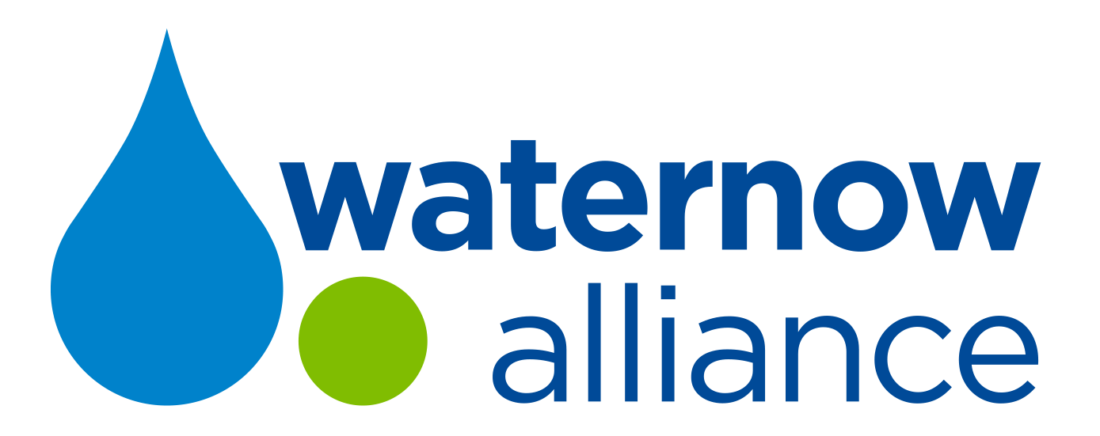WaterNow is excited to announce the newest Project Accelerator participants! Through Project Accelerator, we partner with communities and water agencies to champion sustainable, innovative water solutions. Today we announce three new Accelerator projects that we will begin working with this fall.
Creating a Strategic Roadmap for Water Conservation and Efficiency Programs | City of Alamosa, Colorado
The City of Alamosa, CO, is the largest city in the San Luis Valley with a population of 9,814. Nestled within a high alpine desert, the valley receives an average of seven inches of precipitation annually. In recognition of the importance of water conservation stemming from a Growing Water Smart workshop in 2022, the City has adopted and is in the process of implementing a Water Efficiency Plan. To build on these efforts, Alamosa aims to develop water efficiency incentive programs for their customers. WaterNow has partnered with the City to explore the structuring of water conservation incentive programs, ensuring equitable benefits for all residents, particularly those in lower income brackets. Key project elements include conducting baseline research to inform program development, creating a roadmap for the program’s implementation, community stakeholder engagement, and identifying sustainable funding sources and strategies to support the program’s long-term viability.
Supporting Commercial, Industrial, and Institutional Customers in RemovingNon-Functional Turf | Long Beach Utilities, California
WaterNow will partner with Long Beach Utilities, which provides services to nearly 500,000 residents and businesses, to support Commercial, Industrial, and Institutional (CII) customers in complying with California’s Assembly Bill 1572 (AB-1572). The bill bans the use of potable water to irrigate ornamental or “non-functional” turf – turf that is not used for recreation or as a community gathering space – and requires CII properties to self-report compliance by 2030 or, for customers in Disadvantaged Communities, by 2032. The project’s key activities will include: reviewing ordinance language, supporting the creation of a resource portfolio for CII customers, developing a strategic plan for community outreach, organizing stakeholder roundtables and presentations, creating a survey to gather feedback, and designing a Long Beach-specific questionnaire for assessing non-functional turf on commercial properties. These efforts will be designed to enhance understanding of AB-1572, facilitate the transition from traditional grass to climate-resilient gardens, and streamline the certification process for compliance.
A Joint Program for GSI in Pittsburgh's Vacant Lots | City of Pittsburgh and Pittsburgh Water and Sewer Authority, Pennsylvania
Residents of Pittsburgh experience adverse impacts from flooding and sewage overflows, which will worsen as climate change leads to more frequent and severe rainfall events. However, the large amount of vacant land available in Pittsburgh, and especially in neighborhoods where disinvestment and declining populations have led to a decrease in population density, offers promising potential to help address these stormwater challenges. This project will establish the foundation for a joint program between the City of Pittsburgh and the Pittsburgh Water and Sewer Authority for the equitable and strategic conversion of vacant lots to green stormwater infrastructure (GSI). The program will help to address flooding and water quality challenges by advancing GSI implementation in areas facing particularly high rates of combined sewer overflows, flood risks and environmental injustices across Pittsburgh, while also enhancing climate resilience, quality of life, and promoting healthy natural systems and improved water quality in Pittsburgh’s priority watersheds.
The project includes the development of research on key findings and best practices from other municipal vacant lot and stormwater management efforts; federal funding and financing navigation; GSI performance and cost/benefit metrics; an operations and maintenance plan; a cost-sharing protocol; a protocol for private property acquisition; a site analysis to evaluate optimal vacant lot locations for GSI projects; and site concept plans. WaterNow, the City, and PWSA will partner with local organizations to engage community members throughout the course of this project.
Looking to Future Opportunities
It’s exciting to see so many water providers across the U.S. developing sustainable and innovative projects to address flooding, foster water conservation, and strengthen their role as anchor institutions and community resources. We look forward to adding this round of projects to the library of examples and resources available on our website.
Future applications rounds for Project Accelerator are coming up this winter as well as in the spring of 2025, and we strongly encourage communities to consider applying. We look forward to more opportunities to build a sustainable, resilient water future with you!





